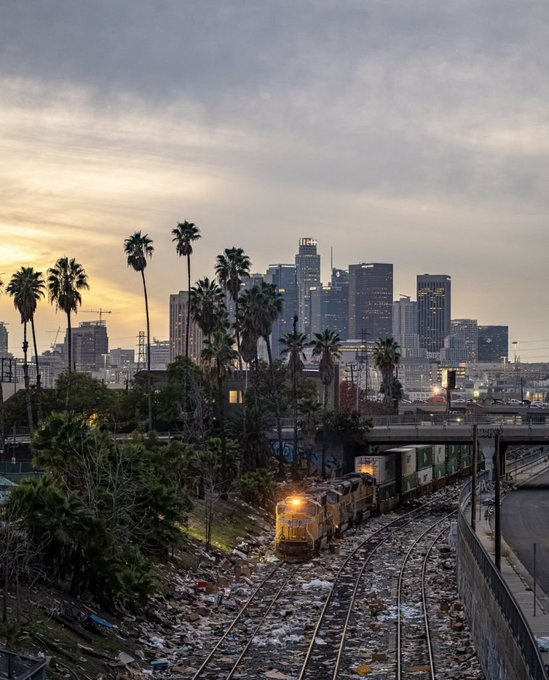In practice, American politics has always feared but in theory sanctioned slave revolts. Slave revolts are denounced, at least by implication, in the Declaration of Independence itself. The charges against the King culminate in this: “He has excited domestic Insurrections amongst us, and has endeavoured to bring on the Inhabitants of our Frontiers, the merciless Indian Savages, whose known Rule of Warfare, is an undistinguished Destruction, of all Ages, Sexes and Conditions.” The “domestic Insurrections” refer to the British recruitment of slaves into an army that would put down the colonials’ rebellion and guarantee their own emancipation. The implication of the Declaration’s text is that liberated slaves would fight like “merciless Indian Savages” who practiced a brutal equality of the warfare of “undistinguished Destruction.”
On the other hand, of course, the Declaration’s governing principle of equality of natural rights covers the slaves and Indians no less than white Virginians in their struggle against their particular masters. But antebellum political practice sought to suppress the connection between these two faces of the natural right of liberty. The Southerners resorted to legalistic arguments to justify their secession (the Kentucky Resolutions), not to philosophic doctrines about liberty and rule by consent. The war, naturally, had its own logic. Lincoln’s Emancipation Proclamation reminded Southern masters of the brutal truth of natural right, as they now faced war on multiple fronts.
Today, free Americans such as we are face another form of slavery, or rule without consent—this one imposed by an oppressive administrative state that regulates even the smallest details of our lives. It seems that we today, unlike our revolutionary forefathers, must prove our liberties exist before we may exercise them. Thus the premise of the Declaration, with its assumption of natural rights, is rejected.
Here again, we are called to assert and defend the truth of natural rights and our fundamental claim to liberty.
The one public figure today who acts consistently in support of this principle is, quite appropriately, the one who may be the closest to the experience of the original form of American slavery: Clarence Thomas. He is also a survivor who escaped the near-death experience of being recruited to black militancy during his college years in the 1960s.
The latest Clarence Thomas autobiography (in effect his third) following the book My Grandfather’s Son and the stunning documentary film “Created Equal” is Michael Pack and Mark Paoletta’s book, Created Equal: Clarence Thomas in His Own Words. Pack is a distinguished film producer and former president of the Claremont Institute, and Paoletta is the Washington attorney who shepherded Thomas’s judicial nominations and now serves as Ginni Thomas’ attorney before the January 6 committee.
Their book performs the estimable service of reprinting more of the transcripts of the interviews they conducted of Thomas and of his wife, Ginni, for the film. Like Frederick Douglass’ three autobiographies, they each fill in the portrait of the man in full. The just-published book gives the most complete reckoning of Thomas’ own account of his origins as a thinker and true public servant. According to its author-editors, “[o]ver 90 percent of the material in this book did not appear in the film . . . ”, nor I would add, in the first autobiography.
From this most recent account we see in more detail how he came to be the leader of the slave revolt of the 21st century. We see the natural right bases of his Second Amendment and abortion opinions plus his many opinions on the administrative state. This is a slave revolt that affirms human decency and dignity. Thomas wrote these opinions because he is the person who, in public life and on the Court, takes to heart most firmly the principles of the Declaration of Independence.
He is America’s greatest living American.
Thus, when he inveighs against the abuses of “substantive due process,” as he does in the Dobbs anti-Roe opinion, he is not mouthing the now-venerable critique of this fabricated doctrine, he is tying it to the inherent right of self-defense in his Second Amendment opinion. The freedom that Thomas embraces is our natural rights and that freedom is as indivisible as it is inalienable.
Thomas’ fierce defense of liberty is not derived from mere intellectual persuasion. It is forged in the fire of personal experience growing up in the segregated South. The 1950s may be a few generations apart from the 1850s, but they are closer in lived experience than they are in time. Imagine your grandfather receiving a traffic ticket for driving while wearing too many clothes! That happened to Thomas’ grandfather. But Thomas maintains despite these indignities that he had a happy childhood. After all, he grew up with “Catholic privilege,” which strengthened his mind and deepened his soul. “My view was that Lincoln freed the slaves, and I like to take full advantage of that.” That is, he refused to imprison his own mind like a slave.
One cannot understand Clarence Thomas apart from his fascination with natural law. He elaborates on this in his conversations here and in his Notre Dame Tocqueville lecture, as owing to his Catholic education. This interest did not come from specific teachings of Thomas Aquinas but rather, I would say, from the patriotism his school nuns reinforced, not to mention the doctrine of original sin which they surely taught. From Thomas’ recounting, the books he read and subjects he studied put to shame today’s most favored public and private schools. Most important of all, he had demanding nuns and priests who continually drew more from him.
With this background, and following a near-catastrophic encounter with ’60s radicalism, he came to Washington (with all its patriotic symbols) and then to the Equal Employment Opportunity Commission, the federal agency that enforces employment discrimination claims. Through a series of improbable coincidences he wound up with a copy of my vita and some of my writings, which led him to invite me to leave the Claremont Institute to be a special assistant and help him for a year or two (it turned out to be closer to four) “to think.”
Impressed by his obvious wisdom, strength, and depth, I joined his staff in June 1986, and soon thereafter he asked me to bring on some other like-minded staff. Fascinated by one of John Marini’s papers on the administrative state, Thomas hired him, too. I also introduced Thomas to, among others, the late Peter Schramm, Thomas G. West, the late John Wettergreen, and also to Philip Lyons, who eventually joined his staff.
His other autobiographies make one mention of John and me, but there are four mentions of this Claremont influence (always with us paired together) in the new book, in addition to more elaborate discussions of natural law. Thomas captures well the combative but joyful spirit of what went on, in this recollection: “They [Marini and Masugi] were upset with me because I was too much of a libertarian for them. We would go over to [the] Cato [Institute] and argue over it. We’d go argue with the lawyers at the Justice Department, those positivists.” (I omit their names.)
Armed with his knowledge and voracious reading,
we would say, ‘Let’s go debate the sixties socialists,’ and we would go right there [to American Political Science Association meetings—all other brackets are in the original text]. Oh gosh, we got in more trouble. But it was great. I mean, it was just a wonderful group. And then I flew out to Claremont [Institute in California]. I met Larry Arnn [the President of the Claremont Institute (and now President of Hillsdale College)], Harry Jaffa [the Lincoln scholar and political philosopher] on a number of occasions. There were others, Ed Erler, Charles Kesler. We’d go over to Charles Kesler’s apartment and listen to country music. . . . It was great. I consider it not only one of the seminal periods of my time at the EEOC, but also one of the most formative intellectually of my tenure in D.C.
Claremonsters should be flattered that Clarence Thomas can be called “one of us.” Note that the natural law discussions did not make him a conservative; rather it allowed his conservatism to come forth in a way that took into account the glory and grandeur of American politics without discounting its flaws. It may seem difficult to realize today, but back then Thomas had to fight against both Left and Right.
The fierceness required to carry on the fight today against deluded tyrants, of both the grand and the petty sort, comes through in Thomas’ recollection of his confirmation battle against the Senate Judiciary Committee, chaired by then-Senator Joe Biden (D-Del.). The exchange over natural law shows the difference between theory as a rationalization for despotic practice and theory as an argument for liberty.
As John Marini recently reminded me, the three of us discussed Robert Bork’s confirmation hearing in 1987, Oliver North’s appearance before the Iran-Contra committee in 1986, and, in particular, why “intellectual feast” Bork failed and the pugilist North succeeded. At his own Supreme Court confirmation hearings in 1991, Thomas viewed his Democratic Senators as “small, diminished” creatures who put out sleaze they knew to be untrue. What saved Thomas was his courage and his insight “[t]hat people actually were better than they [the accuser senators] were.” (See Paoletta’s website, to remind us that for the Left the battle is never over.)
The Washington elite and the administrative state that serves it can only be defeated when the people arise in rebellion against it. Thomas himself admonished me back in 1986 that we needed to get the message out about the dangers posed by Washington. Now, almost 40 years later, the whole country is beginning to get it. Self-defense, abortion, and the unfettered rule of “experts” who run powerful agencies—the subjects of Court decisions of the past two weeks—are all facets of the great slavery of our time.
This nation is blessed to have Clarence Thomas as our judge on the Supreme Court. Now the rest of us must strain our souls to match his justice.






